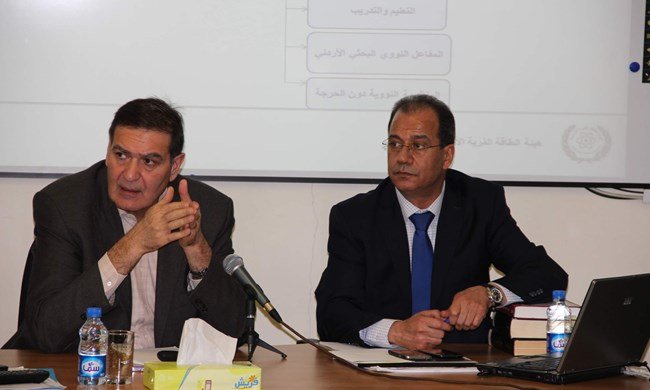Image:

18 Nov 2014
Chairman of Jordan Atomic Energy Commission, Dr. Khaled Toukan, said that Jordan's nuclear program strives to find solutions to the energy problem in Jordan which imports 97% of its energy needs, saying that the reliance on a mix of diverse energy sources is a strategic option for the state.<br />
<br />
During a lecture he gave at the Jordan Media Institute, Dr. Toukan said that the oil bill constitutes 22% of Jordan’s gross national product describing that as a "core risk" especially since supplies are unstable and change according to political developments in the region. He added that the disruption of Egyptian gas caused an accumulation of the electricity company's debts, which have now hit the four billion Dinar marker. Toukan stressed that the high cost of the Kingdom’s oil bill, now standing at two billion dinars per year, is a major contributor to Jordan's indebtedness. The Chairman pointed out that making use of nuclear energy and uranium in the Kingdom can be a huge opportunity to achieve tangible growth in various fields, especially agricultural and industrial ones.<br />
<br />
Answering student questions, Dr. Toukan said that the opposition of Jordan's nuclear project is healthy and important. However, he said, it was important to also note that the technology behind nuclear reactors has greatly evolved, since it came into use over fifty years ago.<br />
<br />
The Chairman said that the nuclear project in Jordan is a national project, and is not linked to individual persons adding that intensive work is currently underway to qualify a generation of educated and experienced professionals in the nuclear field. Toukan explained that the project applies International Atomic Energy Agency regulation, including in what concerns the review of project legislation and structure, noting that the project will also apply the United States' security and protection system.



